The reason? I practically grew up in England. An England with yet another dialect...







action characterized by kusala-kamma is bound to result
eventually
in happiness and a favorable outcome...








I do still believe in a certain kind of lux æterna...
Merry Christmas.
 I'm in such a fuckin rush to get out of the office that I'm starting to get cranky. And I'm running late.
I'm in such a fuckin rush to get out of the office that I'm starting to get cranky. And I'm running late.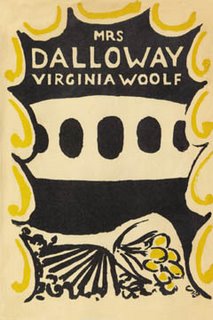 "¡Qué zambullida!"
"¡Qué zambullida!"It was her life, and, bending her head over the hall table, she bowed beneath the influence, felt blessed and purified, saying to herself, as she took the pad with the telephone message on it, how moments like this are buds on the tree of life, flowers of darkness they are, she thought (as if some lovely rose had blossomed for her eyes only); not for a moment did she believe in God; but all the more, she thought, taking up the pad, must one repay in daily life to servants, yes, to dogs and canaries, above all to Richard her husband, who was the foundation of it—of the gay sounds, of the green lights, of the cook even whistling, for Mrs. Walker was Irish and whistled all day long—one must pay back from this secret deposit of exquisite moments, she thought, lifting the pad, while Lucy stood by her, trying to explain how.I was in awe. It's almost a mess, but I think it takes absolute genius to write sentences like that. I thought I might try writing a few of my own just "for fun" sometime, but I can't see myself managing to pull off that kind of construction, even as an exercise. I love the idea of trying to throw out so much convention though. Screw whatever your tenth grade English teacher (or present-day anal-retentive proscriptive grammar wonks) tried to instill in you about the "proper paragraph."
...Clarissa had a theory in those days—they had heaps of theories, always theories, as young people have. It was to explain the feeling they had of dissatisfaction; not knowing people; not being known. For how could they know each other? You met every day; then not for six months, or years. It was unsatisfactory, they agreed, how little one knew people. But she said, sitting on the bus going up Shaftesbury Avenue, she felt herself everywhere; not "here, here, here"; and she tapped the back of the seat; but everywhere. She waved her hand, going up Shaftesbury Avenue. She was all that. So that to know her, or any one, one must seek out people who completed them; even the places. Odd affinities she had with people she had never spoken to, some woman in the street, some man behind a counter—even trees, or barns. It ended in a transcendental theory which, with her horror of death, allowed her to believe, or say that she believed (for all her scepticism), that since our apparitions, the part of us which appears, are so momentary compared with the other, the unseen part of us, which spreads wide, the unseen might survive, be recovered somehow attached to this person or that, or even haunting certain places after death . . . perhaps—perhaps.
The unseen might survive.
 "There was a time
"There was a time Happy Saint Lucia Day.
Happy Saint Lucia Day.
 Night stomps with heavy feet
Night stomps with heavy feet









 Via Ultrabrown, was turned on to the Indian comic strip "This is Our Life" by Rajneesh Kapoor. Very worth checking out.
Via Ultrabrown, was turned on to the Indian comic strip "This is Our Life" by Rajneesh Kapoor. Very worth checking out.
 This is what I get for blogsurfing all day.
This is what I get for blogsurfing all day.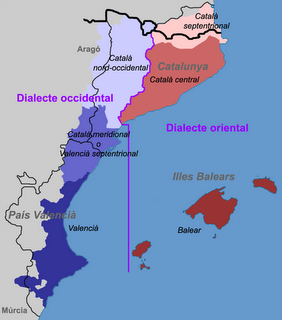 Most of us know by now how touchy the Catalan/Basque autonomy issue is, but this piece was interesting in pointing out how this is politically and practically playing out. I thought lots of parallels could be drawn with Quebec, where I've heard English can get a fairly icy reception in certain areas. However, it seems a bit extreme to say that a national author would be greeted with cries of "fascist" when arriving to deliver an address, merely because of speaking Castellano.
Most of us know by now how touchy the Catalan/Basque autonomy issue is, but this piece was interesting in pointing out how this is politically and practically playing out. I thought lots of parallels could be drawn with Quebec, where I've heard English can get a fairly icy reception in certain areas. However, it seems a bit extreme to say that a national author would be greeted with cries of "fascist" when arriving to deliver an address, merely because of speaking Castellano.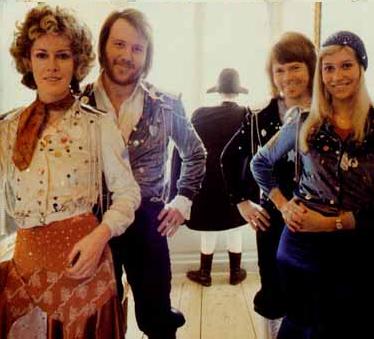


I have wondered a lot if this tendency to perceive similarities might be a completely patronizing "first-worlder" view of things — as if I'm seeing the "griminess" and "rusticity" as some kind of quaint and charming World's Fair Exhibition... When in fact Guanajuato and Accra may be about as similar as Helsinki and Topeka.
In the end, I don't think I'm being unfair or ethnocentric or a particularly ugly American by recognizing some amorphous "Third World" similarities on the surface of things. A day or so after I had been observing this stuff, Bob said as much to me — wondering if I might be seeing and enjoying some similarities between Mexico and Ghana. I replied that yes, in fact, I had been, but I again questioned whether it was in some way patronizing to lump all these "undeveloped" countries into one basket just because they have open-air food stands propped up in the dust at the side of the road.
I'm well aware that one doesn't need to be the type who looks down one's nose at the "filth" in another country to be an ugly, biased turista. It's just as much of a pitfall to be the hug-fest type of tourist who loves the "charm" of the "common people" and does everything to Enjoy! and Appreciate! the Authenticity! of the campo! Please, Lord, let me not be exactly the latter GlobalExchange/Rotary International type of traveler. Let me walk some kind of middle ground of being able to eat tamales on the street while also thoroughly enjoying an icy cocktail in the courtyard of a luxury multinational hotel.
In any case, the urban outskirts of Guanajuato gave way to the long, winding, rural road to San Miguel de Allende. It reminded me in its empty openness of Highway 1 to Lompoc or the twisting black stretch of Highway 33 deep in Ventura County.
I notice road signs whenever I travel, and I try to remember them, no matter how mundane. Favor Disminuya su Velocidad. Directional signs pointing out "Celaya," "S.Mig. de Allende," "D. Hidalgo." Signs declaring that one is entering "La Fragua de la Independencia Nacional"... the "anvil" of independence. I first thought fragua must mean cradle, since that's the popular idiom that sprang to mind, but then I realized that cradle would be cuna. Only the next day did I learn from Bob that fragua means anvil. Does the USA have an "anvil" of independence? If not, why not? Are we more comfortable with independence being cradled and nurtured into being rather than hammered out in a hot, sweltering iron forge?
Finally, some of the most perplexing signs: No Maltrate las Señales.
The ride was beautiful, the road dark and mostly empty, with the lights of the distant towns, including San Miguel, twinkling. There were only a couple of incidents in which I felt my heart beat a little faster, having noticed the speed of the oncoming traffic, including a few fiercely growling dump trucks, on the narrow two-lane road, and just a couple of glimmering white crosses sprouting out along the roadside here and there. Always, encouraging reminders for the adventurous traveler.
Finally, the road wound into San Miguel after circling it and offering a good glimpse of the illuminated spire of the Parroquia. We descended slightly down a narrow but busy cobblestone road — a main thoroughfare known only as La Salida de Queretaro — that felt to me as if it could have been in the Albaicín of Granada. More tiny, inviting little shops that made me think of tins of powdered milk, tomato paste, and chocolate bars.
The taxi let us off at the base of Callejon Cruz del Pueblo, Bob's "street" — an irregular, somewhat narrow stairway-paseo. We passed through the garden wall from the paseo into what I considered a true idyll: quiet and cozy, with an amazing second-story view of the Parroquia and the entire center of town spread out below.
I felt lucky to be there, and looked forward to curling up under a couple of wool blankets in the guest room. Sound sleep had been mostly ensured: no scorpions were found under the clothes hamper.
I awoke the next morning to pure vacation... [Pictures below: 'Casa Roberto']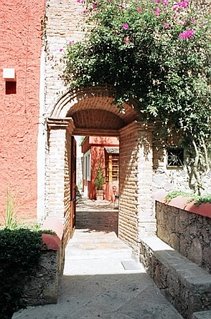



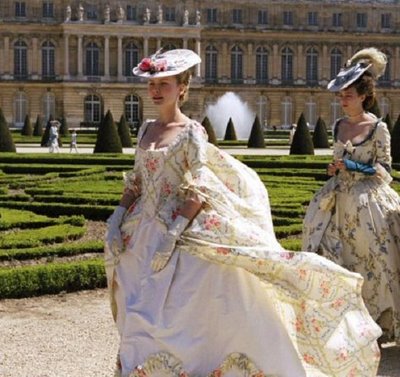
 I liked this movie a lot, but I'm not convinced it's a "Great" film. It's not exactly dialogue-driven, which can certainly be an ok thing. In terms of imagery alone, it evoked, well, a certain degree of emotion. Much of it was pure confection, but still, some of the scenes and the photography did evoke feeling. I'm ambivalent about my attitude toward M.A.: was she just a pawn born and bred for her position as a consort and producer of heirs, or, as queen, could she have taken a different tack and an interest in the affairs of her nation, preventing the downfall of the monarchy?
I liked this movie a lot, but I'm not convinced it's a "Great" film. It's not exactly dialogue-driven, which can certainly be an ok thing. In terms of imagery alone, it evoked, well, a certain degree of emotion. Much of it was pure confection, but still, some of the scenes and the photography did evoke feeling. I'm ambivalent about my attitude toward M.A.: was she just a pawn born and bred for her position as a consort and producer of heirs, or, as queen, could she have taken a different tack and an interest in the affairs of her nation, preventing the downfall of the monarchy? En route to León/San Miguel, Bob and I had a good six-and-a-half-hour, mid-day stopover in Dallas. Soooo, Bob had the idea of finding ground transportation into town, grabbing lunch, and maybe checking out the infamous Dealey Plaza. Personally, I had no interest in making a pilgrimage to the site of a bloody assassination by rifle, but Bob considered it a place of intrigue, and I was along for the ride, so what the hell.
En route to León/San Miguel, Bob and I had a good six-and-a-half-hour, mid-day stopover in Dallas. Soooo, Bob had the idea of finding ground transportation into town, grabbing lunch, and maybe checking out the infamous Dealey Plaza. Personally, I had no interest in making a pilgrimage to the site of a bloody assassination by rifle, but Bob considered it a place of intrigue, and I was along for the ride, so what the hell. As for Dallas? Meh.
As for Dallas? Meh.I have to thank GayProf for his recent commentaries on the Lone Star mentality, and especially regarding the Dallas Convention & Vistors' Bureau's marketing overtures toward the gays. And, hey, GayProf, I can attest that it was really pretty difficult to find the "GLBT" section of the CVB website, even when I knew what I was looking for! However, their site is totally entertaining! All marketingspeak, all the time. Check out the "Diverse Dallas" area for some chuckles.
I love this: "The GLBT community is also a large part of Dallas, which boasts the sixth largest gay population in the United States." Hmm, how much "boasting" about that fact is going on? Someone should totally poll Dallasites on the street regarding that one.
It's almost easy to imagine the writing/editing process that went into producing the copy for these promo materials:
Dallaswas a once proud, Whiteis a richly diverse American city - over the years it has becomea magnet for more and more wetbacks, gooks, heathens and sodomitesa melting pot of cultures, religions and lifestyles.The history of Texas is deeply rooted in the Hispanic culture
that was here before we whooped brown ass and pushed the border back to the Rio Grande. Originally called Tejas(jota is for jotos), the Spanish founded the state and today there are over six million Latinos(mostly a bunch of illegal aliens and their descendants)living in Texas.In 1869, Chinese immigrated to Texas to work on the railroads
at slave wages, considering the damn Yankees had just put an end to actual slavery, bringing with them a rich heritage. Dallas now has sixteen different Asianfamiliesnationalities living in the area.
Whew. That was fun. This final pic is (I just found out) the Hyatt Regency. I love how shiny and mirrored and clean it looks. All sparkly and sleek. My photo doesn't do it justice, but I really did enjoy its slick, mirrored skin. However, I have omitted the giant phallus that GayProf alluded to; it's part of the same hotel complex.
On the topic of diversity, though, I did notice that a lot of the DFW airport workers seemed to be of Ethiopian (or other Horn-of-African) extraction. I need to do some quick wikipedia research on that diaspora.
In the end, Tejas was a nice place to have lunch, but I was looking fondly forward to Guanaxuato...
 Don't sarcastically roll your eyes next time someone tells you "If you have your health, you have everything."
Don't sarcastically roll your eyes next time someone tells you "If you have your health, you have everything."Call me cynical (who, me?), but everyone talking about how the country has experienced such a wondrous, miraculous sea change in its outlook and values is mostly full of crap. Yes, it's a great thing that Congress now has a different leadership and balance of power -- and hopefully this will change the tone of the legislation that gets considered and/or passed.All in all, it seems unlikely that the number of voters swayed
by the Macacagate affair was less than the 7,000 margin. And if that is right, then the control of the US Senate and thus the entire legislature may have been turned over to a different party because of one thoughtless nickname choice by a tired and irritated candidate. (That's not an exculpation, by the way. Tired and irritable he was, but reprehensible nonetheless.) It was surely one of the biggest consequences of an on-the-fly nickname choice in all of history. Watch your mouth, politicians. It's a linguistic jungle out there.
 Last night's polyglot concert by Pink Martini was definitely soothing to my mangled, dejected nerves, and I even found the inane couplets of their song "Hang On Little Tomato" to be somehow uplifting.
Last night's polyglot concert by Pink Martini was definitely soothing to my mangled, dejected nerves, and I even found the inane couplets of their song "Hang On Little Tomato" to be somehow uplifting.Somebody told me, I don't know who
Whenever you are sad and blue
And you're feelin' all alone and left behind
Just take a look inside and you will find
You gotta hold on, hold on through the night
Hang on, things will be all right
Even when it's dark
And not a bit of sparkling
Sing-song sunshine from above
Spreading rays of sunny love
Just hang on, hang on to the vine
Stay on, soon you'll be divine
If you start to cry, look up to the sky
Something's coming up ahead
To turn your tears to dew instead
And so I hold on to his advice
When change is hard and not so nice
You listen to your heart the whole night through
Your sunny someday will come one day soon to you
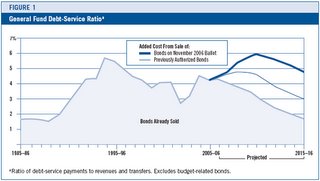 Shit, if my DSR were 6%, I'd spring out of bed dancing every goddamn morning.
Shit, if my DSR were 6%, I'd spring out of bed dancing every goddamn morning. Down. With. Props.
Down. With. Props.Good thing I don't have cable TV: thus, I can spend my evenings kicked back with a cup of Darjeeling, reading my hefty "Voter Guide" instead of watching Nip/Tuck or Project Runway (damn, is the season over!?).
My biggest dilemmas are the bond acts. Bonds, Bonds, Bonds.
Public Education Facilities? Flood Prevention? Emergency Shelters? Who can vote against those! I guess it just worries me that it seems like interest payments on these bonds will only dig the state into a deeper and deeper budget crisis. How much interest is assessed on almost $40-billion of bonds over thirty years? Do we just assume the state economy will grow at a pace that will more than allow payment of all this interest?
Am I just plain thinking too hard? Will I hold my nose, check all the bond "YES" boxes on my absentee ballot, and let some future wonks worry about the fiscal impact? Probably.
Steve Lopez of the Los Angeles Times recently wrote a great column describing all the federal income tax sucked out of California, but not returned via federal funding. Apparently, the disparity between our tax contribution and federal funds returned has gotten worse over the last ten years. Obviously, I realize there are reasons why a "rich" state often subsidizes poorer ones (I'm usually all about the wealth redistribution), but Lopez makes some good points about whether California is getting the federal shaft in some ways, especially when we're floating all these bond acts.
In the end, if I vote for all this, I figure it's just someone else's future I'm mortgaging. Fuck the voter guide. Pass the Netflix.